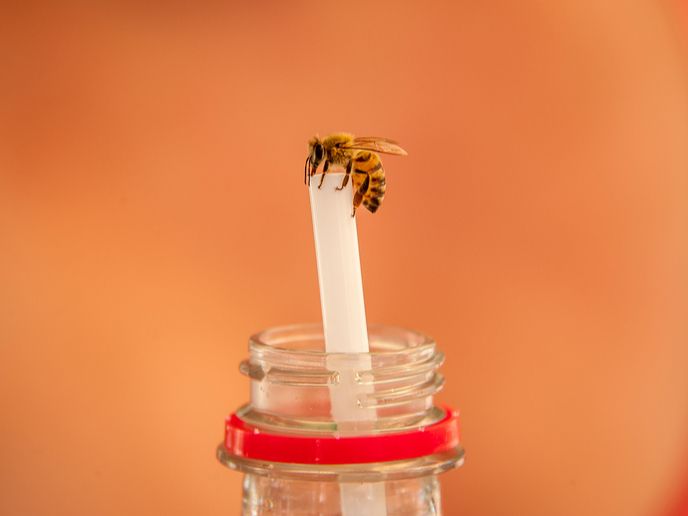Insects don’t have time to laze about – that’s probably why we say someone is “as busy as a bee”. But would an overfed and underactive bug find itself putting on weight like we do? We put this question to insect expert Erlend Sild.
The short answer is a hypothetical yes, explains Sild, CEO and founder of BugBox Ltd in Estonia. “They are very much what they eat, and so it depends really on the food they are given.”
Sild notes that different species of insects can have very different levels of body fat. Around 75 % of insects go through a larval stage, where the body of the insect can become almost 50 % fat. “This serves an important function,” he says. “Insects are fat at a time when they are undergoing an extreme transformation (from larva to pupa to adult), which is an extremely high energy consuming process. The fat is very necessary.”
Sild’s chief interest in insects, however, is their protein content. Demand for protein alternatives is growing, as a rising global population strains existing food supply chains, and surging demand for meat and dairy drives overconsumption and increased pressure on land, water and energy resources.
Supported by EU funding, Sild’s company BugBox has developed an automated mass-rearing system for edible insects, with the aim of making insect protein farming an economically viable proposition. The system is controlled by software, with no human input required during the process.
“Our farming technology is developed for Orthoptera, the order of insects that includes crickets, grasshoppers and locusts,” explains Sild. “The most popular species, house crickets, are the most efficient species for human consumption from the perspective of protein.”
These crickets typically have around 10 % to 12 % body fat, on par with a lean human athlete. And it needn’t go to waste. To turn ground-up grasshoppers into protein powder, their protein content must first be separated from the fat. And as it turns out, this fat could be quite valuable.
“We’ve made studies from our own lab in Uganda about how to manipulate the diet of local grasshoppers,” says Sild. “We found that different feed can affect fatty acid levels, and produce quantities of omega-3 and omega-6. Once fat is separated, you are left with a nice green oil, with no additives and no smell. So there is potential here to develop a nutritional ingredient.”
So insects have the potential to be fattened up, and this fat could be useful for humans. Does this mean we might also find overweight insects in nature? Sild shakes his head. Insects don’t overeat for the sake of it, he says: “Fat is always a resource for them.”
Source: Cordis – European Commission







Leave a Reply